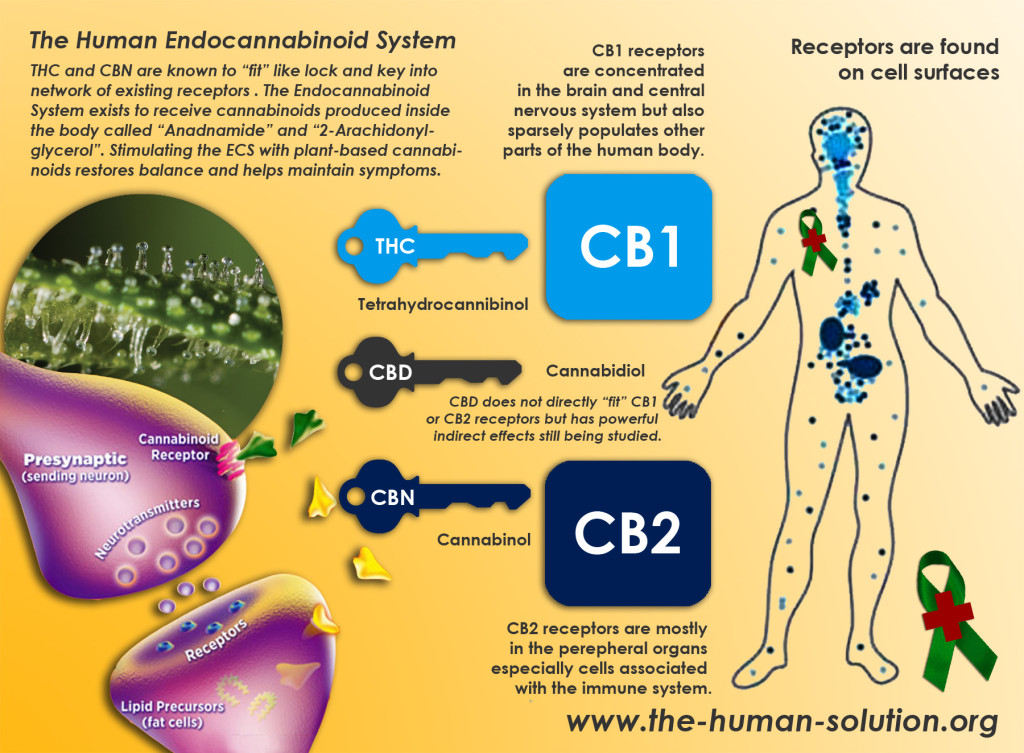Your ECS or Endocannabinoid system consists of a group of compounds known as Cannabinoids. This system also contains the receptor sites the cannabinoids bind to. Endocannabinoids bind to your CB1(Cannabinoid Receptor Type 1) and CB2(Type 2) receptors creating a chemical effect in your body, which the industry refers to as the “lock-and-key” system. The binding of endocannabinoids with cannabinoid receptors “unlocks” a reaction, which can have an impact on emotion, motivation, attention, movement, behavior, decision-making, memory, smell and much more. The ECS plays a crucial role in your day to day life, it affects biological processes like your mood, how well you sleep and what you remember.

The ECS was discovered in 1992 by Dr. Raphael Mechoulam, a professor of medical chemistry was working in the lab when he stumbled onto something miraculous. His team uncovered a naturally occurring neurotransmitter called anandamide. An endocannabinoid produced in the body, with similar structure and activity to THC derived from Cannabis! From this discovery came a better understanding of these compounds and how they link together and form ECS.
The ECS main role in your body is ‘balance’, or homeostasis. Balance is vital to your well-being and life, in fact studies have uncovered that it’s your body’s inability to maintain homeostasis that causes most disease and chronic illness.
Our bodies are full of cannabinoid receptor sites, the best known of these sites are the CB1 and CB2 receptors. They keep your brain and body hormones in balance, and they do it by either stopping or starting hormone activity. CB1 receptors are located in the brain and throughout the body, while CB2 receptors are found mostly in the immune and gastrointestinal system. CB2 receptors can be found in the brain also but not as densely as CB1 receptors. In addition, THC binds more closely to the CB1 receptor than the CB2 receptor.
There are three general varieties of cannabinoids, Phytocannabinoids, Endogenous Cannabinoids and Synthetic Cannabinoids. Phytocannabinoids are plant based cannabinoids such as THC found in cannabis but there is also a wide variety from herbal or botanicals, however not all may be psychoactive. Endogenous Cannabinoids, or endocannabinoids, are produced naturally by the body through things like Omega-3 Fatty Acids found in hemp seeds as well as wild caught fish like sardines and salmon. 2-AG and anandamide are naturally occuring endocannabinoids. Synthetic Cannabinoids are created in a lab. It is said that supplementing cannabinoids can be good for your ECS and helping your body maintain homeostasis.

Pingback: How Medical Marijuana Can Help Treat PTSD
Pingback: Delta-8-THC: A New, Legal Compound Providing Relief With Minimal Psychoactive Effects
Pingback: How to Mix Cannabis and Caffeine for the Best Experience | The Greener Institute